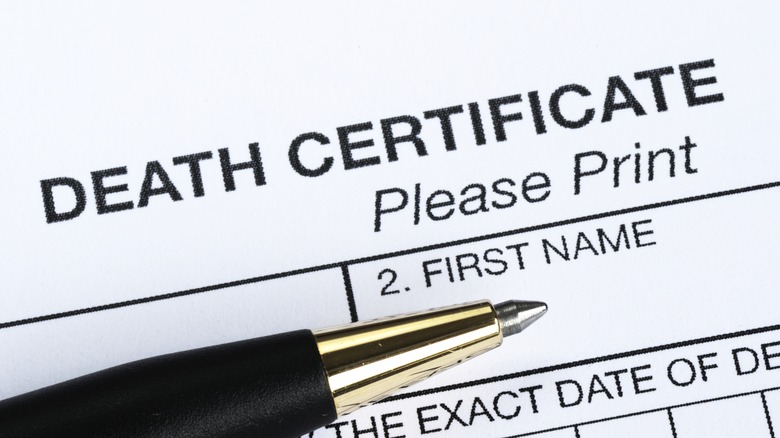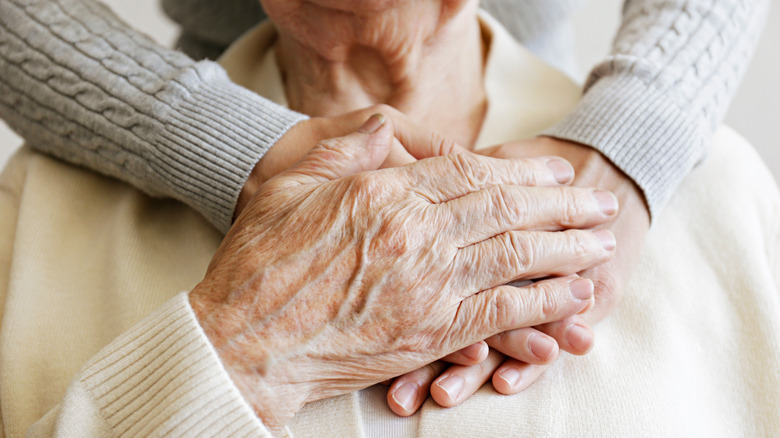What It Really Means When Someone Dies Of 'Old Age'
Of all the disturbing ways a person could die, most of us would probably prefer having "old age" listed as the cause of death on our death certificates. There's a comforting ring to the phrase; it seems to imply a peacefulness and lack of suffering. Unfortunately, at this time in the United States, "old age" is not a medically approved cause of death, although the term is often tossed around in casual conversation. But no one actually dies simply from making it, say, to 102.
Nodar Janas, M.D., a physician at Upper East Side Rehabilitation and Nursing Center in New York explains, "With advances in medicine and technology we can better and more accurately pinpoint causes of death in people, unlike many years ago when people died and doctors were unsure of the cause" (via The Healthy). There is always some cause, or some combination of causes, that actually causes death. When someone says "he just died in his sleep at 93," it may actually have been a heart attack, or pneumonia, that finally killed him.
As we age, our cells accumulate genetic damage, and don't regenerate as quickly or perform their essential processes as well as they did when we were younger (via Business Insider). This leaves us more vulnerable to age-related diseases, but at the same time causes our immune systems to be less equipped to fight off pathogens.
'Old age' is not an official cause of death in the US
The aging process, combined with the fact that about 88% of adults over 65 have one chronic condition, and 50% have two or more, means that, sooner or later, the perfect storm of a weakened immune system, plus an infection or stressor that overwhelms the body, will lead to death (via Everyday Health). In the United States, the most common causes of death among the elderly are heart disease and cancer.
What does "old" mean, anyway? After all, there are 95-year-olds who are healthy and active. Interestingly, the older people get, the younger the age they feel comfortable calling "old." When surveyed, adults between the ages of 30 and 49 considered someone to be "old" at age 69, while those over 65 set old age at 74 (via Live About).
Saying someone died of "old age" will continue to be used unofficially when an elderly person dies of undetermined causes. And maybe that's for the best. As Alexis Halpern, M.D., an emergency medicine physician at New York-Presbyterian/Weill Cornell Medical Center, says, "It's also a nice way to think about it ... you don't categorize someone as ill when you say that. It has a much more peaceful tone to it. Like, they lived a good life, and died of old age."


